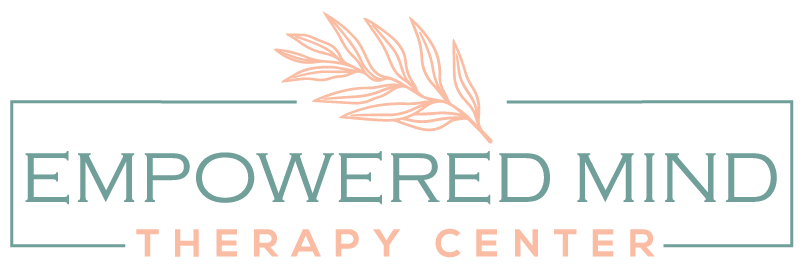Understanding Therapy for BIPOC Women: Addressing Unique Challenges & Breaking Stigmas
Therapy offers transformative tools for self-discovery, healing, and empowerment, but for BIPOC women, navigating mental health can involve unique challenges. Intersecting factors such as cultural expectations, family dynamics, and the impacts of systemic discrimination often contribute to complex mental health needs that require specialized, culturally responsive care.
Key Challenges for BIPOC Women
Intergenerational Trauma and Cultural Pressure:
For many BIPOC women, trauma and cultural expectations run deep. You may feel pressured to meet family expectations or continue traditions without question, even if they don’t align with your values.
Therapy provides a space to examine these cultural and familial influences, helping you to define personal values that honor both your heritage and your individuality.
Overcoming Stigma and Seeking Support:
Mental health stigma can be particularly strong in some BIPOC communities, where therapy may be viewed as unnecessary or even shameful. Many BIPOC women feel pressure to “stay strong” and keep struggles private.
Working with a culturally responsive therapist can make therapy a safe, non-judgmental experience, helping you navigate and overcome stigma, so you can prioritize your well-being.
Challenges in the Workplace:
BIPOC women often navigate workplace discrimination, microaggressions, and the need to overachieve. Therapy helps you process these experiences, build resilience, and develop tools for setting boundaries in professional spaces.
By providing a safe and affirming space, therapy enables BIPOC women to heal from past wounds, celebrate their unique identity, and create meaningful change in their lives.
Tools and Techniques Learned in Therapy – Finding Empowerment Through Self-Compassion
In therapy, BIPOC women can learn a range of skills that promote self-awareness, resilience, and self-compassion. These tools are essential for navigating life’s challenges with confidence and purpose, especially in a society where the struggles of BIPOC women are often misunderstood or minimized.
Key Tools in Therapy for BIPOC Women
Mindfulness and Stress-Reduction Practices:
Mindfulness and breathing exercises help bring you into the present moment, which can be incredibly grounding during high-stress situations. These techniques are particularly useful for managing anxiety and staying connected to your body’s needs.
Boundary-Setting Techniques:
BIPOC women often feel pressure to take on more responsibilities than they should, both at work and home. Therapy provides skills to set boundaries that protect your time and energy, helping you say “no” without guilt.
Cognitive Behavioral Therapy (CBT) for Self-Compassion:
CBT is particularly effective for managing negative thought patterns. In therapy, you learn to challenge harmful self-talk and replace it with positive, affirming thoughts that support your self-worth and well-being.
Intergenerational Trauma Work with Brainspotting and EMDR:
Brainspotting and EMDR are powerful modalities that address emotional trauma stored in the brain. For BIPOC women, these therapies allow you to process deep-rooted emotions and past pain, offering freedom from patterns that have impacted your self-worth or confidence.
Learning these tools in therapy can empower you to face life’s challenges with resilience and self-compassion. Therapy isn’t just about healing; it’s about growing into a stronger, more empowered version of yourself.
Looking for support in Walnut Creek, Oakland, or the greater San Francisco Bay Area?
At Empowered Mind Therapy Center, we are dedicated to offering compassionate care and unwavering support for individuals who are seeking personal growth and healing. Our highly experienced therapists specialize in trauma-informed therapy, ensuring you receive the utmost care and understanding.
Whether you call Walnut Creek, Hayward, or any other corner of the San Francisco Bay Area home, rest assured that we offer evidence-based treatment options customized to meet your unique needs. Our goal is to empower and support you on your path to healing and personal growth.
Our commitment to your well-being is unwavering. Let us be your source of strength and support as you journey towards healing and resilience.
If you're interested in starting counseling at Empowered Mind Therapy, follow these steps:
Get in touch with our Intake Coordinator at 925-257-0205 or book your free consultation.
Get started on your healing journey and finally feel better.
Other Services We Offer in the San Francisco Bay Area & Throughout California
In addition to providing online therapy, we also offer a variety of counseling services for women of color. This includes relief and support for depression, processing trauma, anxiety support, and relationship issues. Our caring therapists also offer Brainspotting, EMDR & EMDR Intensives. All of these services are available in person at our Walnut Creek, CA-based therapy practice or online throughout California.
About The Author
Vanessa Solis, LCSW is a Certified EMDR therapist & Approved EMDR Consultant in the San Francisco Bay Area, offering EMDR Intensives in person and online throughout California. She is the Owner and Director of Empowered Mind Therapy Center, a therapy community where women of color thrive.




